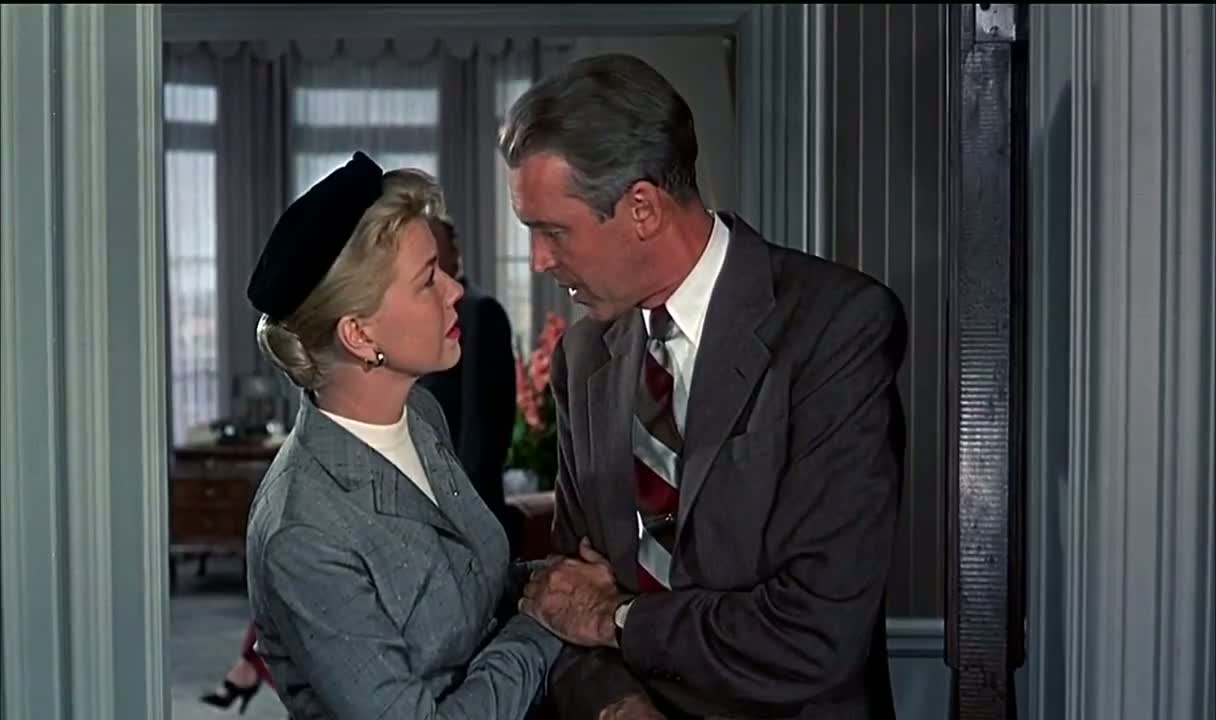In the days since my mother died
unexpectedly a couple of weeks ago, I’ve had, as you might expect,
difficulty doing much of anything besides what’s been required of me. And
that’s been pretty difficult too. In the down time—and I’ve discovered that
when a relative dies, if you’re in a position of responsibility with respect to
arrangements and such, stretches of intense and urgent activity alternate with
seemingly longer stretches during which you’re obliged to wait out something or
other—finding distraction, pleasure, stuff like that, hasn’t really been such a
snap. In short, I’m depressed.
The movies I’ve been gravitating to have been those directed
by Alfred Hitchcock. Hitchcock’s movies figured mightily in my early love of
cinema, and even as I made the determination to find out what made his movies
tick—one of the first movie books I owned was “Hitchcock/Truffaut,” which had
to have been gifted to me by my parents, either during a holiday or via
allowance—I was aware of the extent to which his work also loomed large in my
mom’s cultural life. It wasn’t just hearing her and her pals talk about how
“that scene” in “Psycho” made them take a longer look around the bathroom (and
make sure the door was locked) before stepping into the shower (and this was
years after the movie’s initial release). It was the way she would react, over
the years, when a particular Hitchcock film would come up. I remember telling
her about the initial restoration of “Vertigo” in 1996, she gasped “Oh, that movie.” When talking over “Notorious”
after it had played on television some time, we both marveled at what a
horrible s**t Cary Grant’s character was to Ingrid Bergman (a topic my friend
and RogerEbert.com contributor Sheila O’Malley elaborated on at rewarding
length on her blog).
Hitchcock was, and in some circles still is, known as “The
Master Of Suspense;” he has a much-quoted line about how where some moviemakers
try to offer cinematic slices of life, he was in the business of creating
pieces of cake. But whenever I spoke to my mom about Hitchcock movies, the things
she and I keyed into most specifically were what they did to us emotionally: we
shared tacit gasps at Johnny-O’s monstrous obsessions and the very different
humiliations suffered by Midge and Judy Barton. Cringed at the vicious verbiage
exchanged by Devlin and Alicia at the Rio racetrack. Shuddered at the maternal
trauma of All-American Woman surrogate Doris Day in the master’s own remake of
his “The Man Who Knew Too Much.” There’s a contingent of film critics who
insist that the British-made 1934 “Man” is the superior film, but if you have
someone in your life who was rattled by the 1956 version in an actual New York
movie theater during its initial run, you’re not going to be persuaded.
“Every great artist must create for a great audience,” the
great critic Greil Marcus quotes the great critic Robert Christgau apropos
Randy Newman; Marcus elaborates: “an aggressive, critical audience, with a
conscious sense of itself as an audience, but […] also a big, broad audience,
one whose complexity and diverse needs can push an artist beyond comfortable
limits.” Hitchcock’s huge popularity with the American moviegoing public made
the mandarins of culture of the post-war era believe that there was therefore
no way he could be a real artist—the question of artistry, as Andrew Sarris and
Robin Wood could have told you, was in fact considered so absurd that you could
be laughed out of the room for bringing it up—but it is in fact his ability to
connect to a “great audience” that is part of what made him a great artist.
There’s also the fact that Hitchcock’s audience was largely sexually
integrated—while today’s suspense/action movies are largely considered a
province for male audiences, talk to folks in their ‘70s and over of any gender
and, unless, you know, they didn’t like Hitchcock movies (Graham Greene, what
are you gonna do about him), they liked
Hitchcock movies.
My mom was a terribly sensitive and highly intelligent
person but during the early years of her life she did not balk at being an
average person: in fact given the challenges of her upbringing, being average
was something to aspire to, and getting your kids to “above average” was
considered a signal achievement. Her cognizance of what Hitchcock was up to,
and her appreciation of it—and her pure pleasure in the Hitchcock films that
really were pieces of cake, such as “To
Catch A Thief”—not only gave her something to talk about with a son whose other
cinematic interests got increasingly hermetic over certain years, it gave me a
frame of reference that barred me from becoming too much of a film snob at long
last. Last week when I was going through
her effects, I came upon a stash of Hitchcock DVDs from Universal—“The Man Who
Knew Too Much,” “Rear Window,” “Vertigo,” and so on, and I thought I might as
well bequeath them to the community room of the building in which she lived. I
know they will find an audience. It’s what they’re meant to do.












